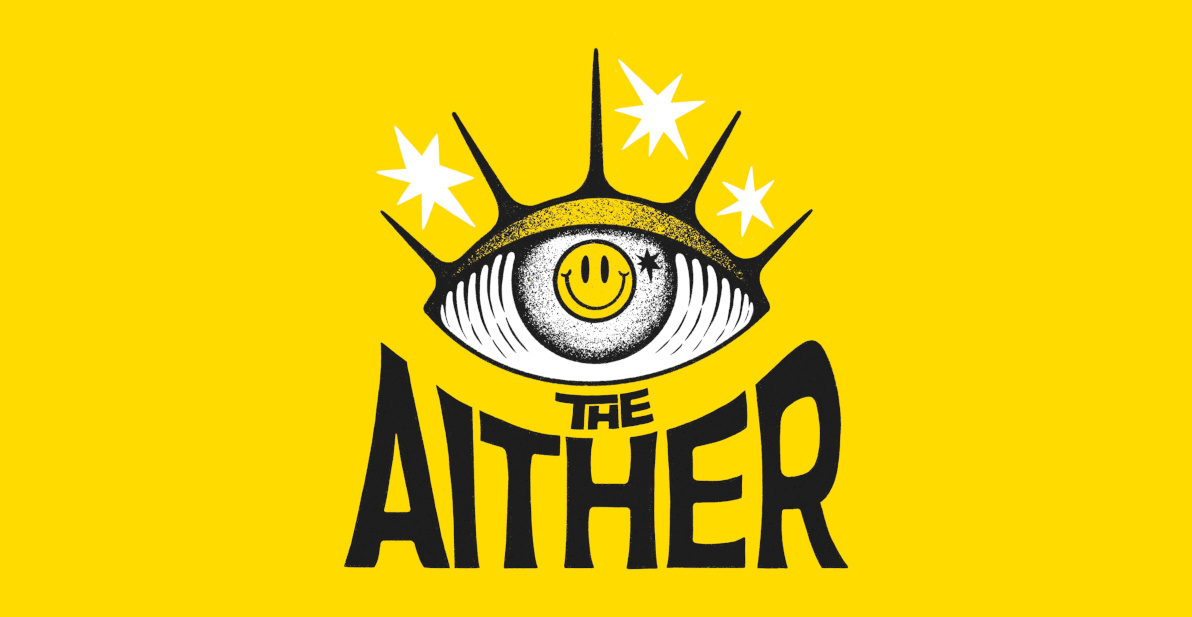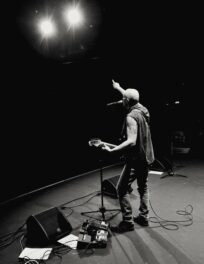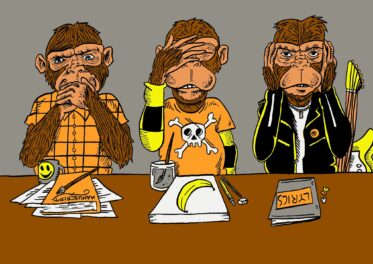AKA A Brief Retrospective of Australian Prime Ministers
With the prospect of another federal election looming, it’s time to brush up on the history of Australian Prime Ministers so we can all avoid repeating any of our previous mistakes.
Here is a brief summary of Australian PM’s and their respective legacies, such as they are…
Sir Edmund Barton (Protectionist Party) 1901-1903:
Australia’s first Prime Minister. Laid the foundations of the White Australia Policy with the Immigration Restriction Act of 1901. Member of the all-white Australian Natives’ Association.
Formed cabinet two days before being sworn in as PM.
May have been racist.
Alfred Deakin (Protectionist Party) 1903-1904:
Leader of the Federation movement. Immaculately groomed beard. Australia’s first Attorney-General.
Promoted “preferential trade for a White Australia”.
Called Australia’s first early election and lost.
May have also been racist.
Chris Watson (Labor Party) 1904-1904:
First leader of the ALP and promoted to PM after the party withdrew support for Deakin.
Lasted four months before resigning, but he would bide his time as leader of the opposition until helping to reinstall Deakin in 1905.
Sir George Reed (Free Trade Party) 1904-1905:
Scottish-born Sir George Reed was the first Leader of the Opposition in his role as leader of the pro-federation Free Trade Party. Introduced national industrial relations reforms and is why you have to go to ‘arbitration’ now.
Possible walrus based on contemporary images.
Alfred Deakin (Protectionist Party) 1905-1908:
Alfred Deakin’s second term marks the first in a series of time-loops that would see Australia overcome with a nationwide sense of déjà vu.
Introduced compulsory military service and Australian currency.
Andrew Fisher (Labor Party) 1908-1909:
Another Scottish-born moustache-haver stuck in a political Groundhog Day.
Formed a minority government until the mantle returned to Deakin the following year.
Alfred Deakin (Liberal Party) 1909-1910:
Fused the Right-leaning factions of the Protectionists and the Anti-Socialist Party into a new conservative body called the Commonwealth Liberal Party, betraying many of his former centrist supporters.
Was defeated in the 1910 election in what was called “the Waterloo of the Liberal Party”.
Anti-socialist, anti-communist, fiscally conservative, and probably still racist.
Andrew Fisher (Labor Party) 1910-1913:
Returned as leader of the Labor Party for the second time.
Created the disability and old age pensions.
Founded Canberra and oversaw the construction of the Trans-Continental Railway so he could leave Canberra. But the train knows what he wants and it won’t let him leave.
Joseph Cook (Liberal Party) 1913-1914:
Former leader of the Anti-Socialist Party and later leader of the Liberal Party.
Worked in the coalmines at nine years of age but appears to have adopted a more Ayn Rand-outlook for the experience than a ‘worker’s rights’ one.
Andrew Fisher (Labor Party) 1914-1915:
Returned as Prime Minister a third time due to a wizard’s curse but resigned the position to William Hughes after essentially disappearing for three days during World War I.
Billy Hughes (Labor/Nationalist Party) 1915-1923:
Created the Australian Federal Police because local police in Warwick, Qld, wouldn’t stop protesters throwing eggs at him.
Stanley Bruce (Nationalist Party) 1923-1929:
Wounded in Gallipoli and still became a recruitment spokesperson for the Army.
Promoted massive government investment and oversaw the move of the government to the new capital in Canberra.
This is why there are so many hotels and sex-workers in Canberra. There’s no other reason.
James Scullin (Labor Party) 1929-1932:
Served as Prime Minister for two days before the Wall Street Crash of 1929 marked the beginning of the Great Depression.
Things didn’t really improve for him from there.
Joseph Lyons (United Australia Party) 1932-1939:
“Honest Joe” Lyons was a popular pre-war leader who became Australia’s first Prime Minister to win three consecutive elections.
He was also the first PM to die while in office.
Sir Earle Page (Country Party) 1939-1939:
Influential early leader of the Country Party.
Served as Prime Minister for 19 days.
Robert Menzies (United Australia Party) 1939-1941:
Authorized Australia’s involvement in World War II.
Resigned after spending several months in England as part of Winston Churchill’s war cabinet.
Helped reshape the modern Liberal Party in 1945.
…would return to office 8 years later.
Arthur Fadden (Country Party) 1941-1941:
Served as Acting-Prime Minister while Menzies was warring alongside Churchill in England.
Became Prime Minister after Menzies’ resignation and stayed in the role for 39 days before being defeated at the 1941 election.
John Curtin (Labor Party) 1941-1945:
Authorized Australia’s involvement in war with Japan after the attack on Pearl Harbor just two months into his tenure.
Placed Australian Pacific command with American General MacArthur.
Died in office due to failing health, which some have attributed to deleterious health effects caused by the stress of the war.
During his tenure of WWII, Australian and US servicemen had engaged in a series of running street brawls known as the Battle of Brisbane.
Frank Forde (Labor Party) 1945-1945:
Served as caretaker-Prime Minister for one week.
Ben Chifley (Labor Party) 1945-1949:
Expanded welfare and immigration programs.
Established ASIO, the Australian National University, and the Snowy Mountain Hydroelectric Scheme.
Notably less racist than the average up to this point.
Sir Robert Menzies (Liberal Party) 1949-1966:
Returned to the Office of Prime Minister as leader of the Liberal Party.
Served for 16 consecutive years in his second term, inspiring rules limiting the length of time a person can serve.
Banned the Communist Party and sent Australian troops to the Korean War and later to the Vietnam War.
Liked war.
Hated Communism.
Harold Holt (Liberal Party) 1966-1967:
Vanished while swimming off the coast of Victoria, had a public swimming pool named after him.
John McEwen (Country Party) 1967-1968:
Served for 23 days before conceding party leadership to John Gorton.
Subsequently appointed Australia’s first Deputy-Prime Minister, a role that had never officially existed before.
John Gorton (Liberal Party) 1968-1971:
Began pulling troops out of Vietnam in response to public pressure.
Resigned after narrowly beating a leadership spill.
William McMahon (Liberal Party) 1971-1972:
Refused to acknowledge the People’s Republic of China but was soon embarrassed when Nixon made a diplomatic visit to acknowledge the nation.
Deeply unpopular PM.
Gough Whitlam (Labor Party) 1972-1975:
Ended military conscription and compulsory service. Implemented universal health care, free university education, and legal aid. Introduced sweeping changes to family law to protect victims of abuse.
Was controversially dismissed by the Governor-General after a row with opposition ministers over a spending bill which had effectively left the government unable to function.
Malcolm Fraser (Liberal Party) 1975-1983:
Ended the White Australia Policy.
Created the SBS network to support multiculturalism.
Fraser’s moderate and truly conservative economic policies annoyed more Right-leaning members of his own party, including a plucky-eyebrowed Treasurer named John Howard who would one day get his revenge on the poor.
Bob Hawke (Labor Party) 1983-1991:
Previous world-record holder for drinking a yard of beer in 11 seconds.
Declared “Advance Australia Fair” as the national anthem, instead of the theme to Skippy the Bush Kangaroo as Australians had been accustomed to singing previously.
Also created Medicare, landmark sexual discrimination laws, and significant economic reforms including floating the Australian Dollar on the international exchange with his young Treasurer Paul Keating.
…but is mostly remembered for the beer.
Paul Keating (Labor Party) 1991-1996:
Successfully challenged Hawke for leadership on his second attempt.
Oversaw the “recession we had to have”.
Introduced the Native Title Act, as well as economic reforms to support lower-income Australians.
Keating is considered equally a legend and a nuisance for his acerbic wit and mean spirit on the floor of Parliament.
It’s not really worth making a joke about Paul Keating in the same way that it’s not really worth dissing Eminem.
John Howard (Liberal Party) 1996-2007:
Looked exactly like the mascot for a popular Australian cleaning-product manufacturer and rode that wave to 11 years in office. Introduced controversial laws and amendments to child protection, family law, and immigration; gave tax benefits to the wealthy, made laws preventing gay marriage, expanded military spending, and kickstarted the turbocharging of the property market that has left a generation unable to afford a home.
But he took guns away after Port Arthur and looks more like a fun Muppet of himself as he gets shorter, so everyone’s basically cool with him now.
Kevin Rudd (Labor Party) 2007-2010:
Made apologies to the Stolen Generation and attempted to mend trade barriers with China.
Chose Rupert Murdoch as his arch nemesis.
Resigned from leadership in the fallout of a bungled mining tax reform.
Julia Gillard (Labor Party) 2010-2013:
Australia’s first, and to date only, female Prime Minister.
Battled entrenched misogyny after replacing Kevin Rudd and was unpopular in polls during her tenure.
Her reforms around the family court and a carbon emissions trading scheme received harsh criticism at the time and have remained as political footballs ever since despite having received increasing praise in recent years.
Kevin Rudd (Labor Party) 2013-2013:
Finally got revenge on his own party for losing faith in him, even if only for 3 months.
Really speaks Chinese.
Still hates Murdoch.
Afterwards became a recurring comic-relief guest on FriendlyJordies and has allegedly been disinvited from all future Nine/Fairfax Christmas Bonanza Parties.
Tony Abbott (Liberal Party) 2013-2015:
Infamous budgie smuggler and austerity economist.
Killed the “carbon tax”.
Opposed gay marriage.
Once ate a raw onion for the publicity.
Fights bushfires for real.
Famously headbutted in public by a Tasmanian DJ.
Malcolm Turnbull (Liberal Party) 2015-2018:
Became Party leader after several internal leadership spills, back and forth between Abbott and Turnbull, until Turnbull finally ousted the then-Prime Minister and assumed the role.
Gave Australia an expensive, contentious, but ultimately successful referendum on gay marriage that was expected to pass with a conscience vote in Parliament rather than a nation-stopping referendum but, hey, we got there in the end.
Scott Morrison (Liberal Party) 2018-present:
Possibly sexually aroused by coal.
Fired from multiple jobs.
Can’t hold hoses and seems confused by tools.
Gave himself a nickname because nobody else would.
Currently avoiding France and dreaming about Hawaii.
Which brings us to a close with Prime Minister #30 and an election due just around the corner.
It’s clear to see the nation has had mixed results to date.
Fingers crossed for #31, Australia.
Good luck everyone.
Let’s really try not to fuck this up…
Article header art by Dan Thrax.





